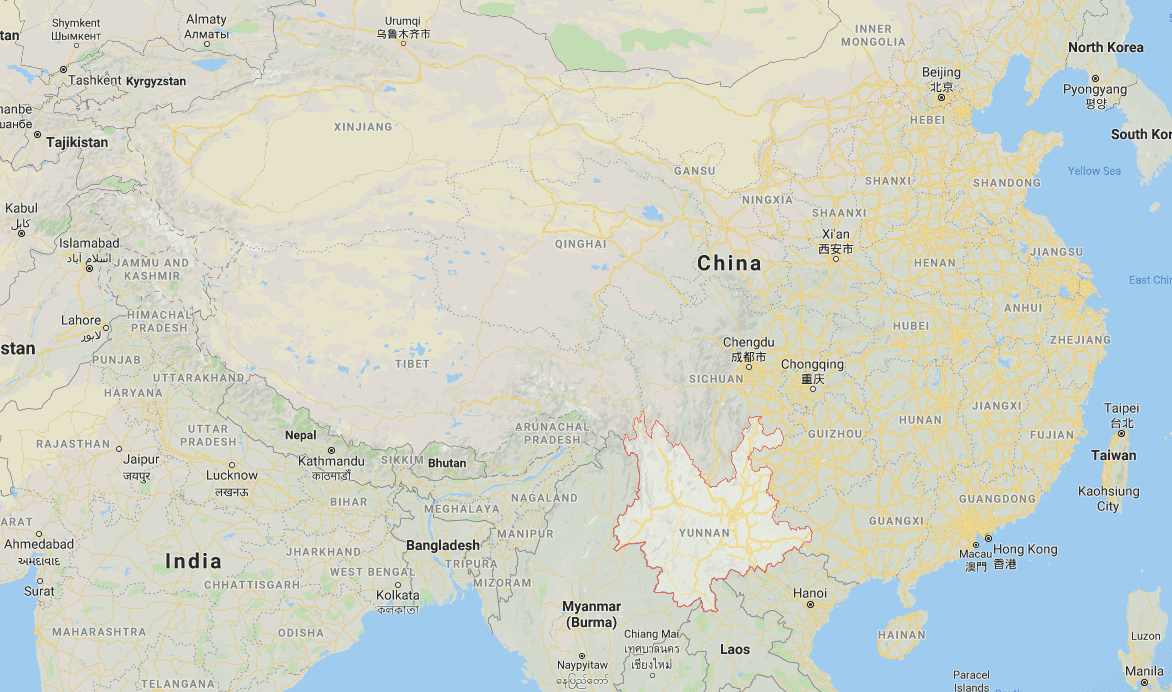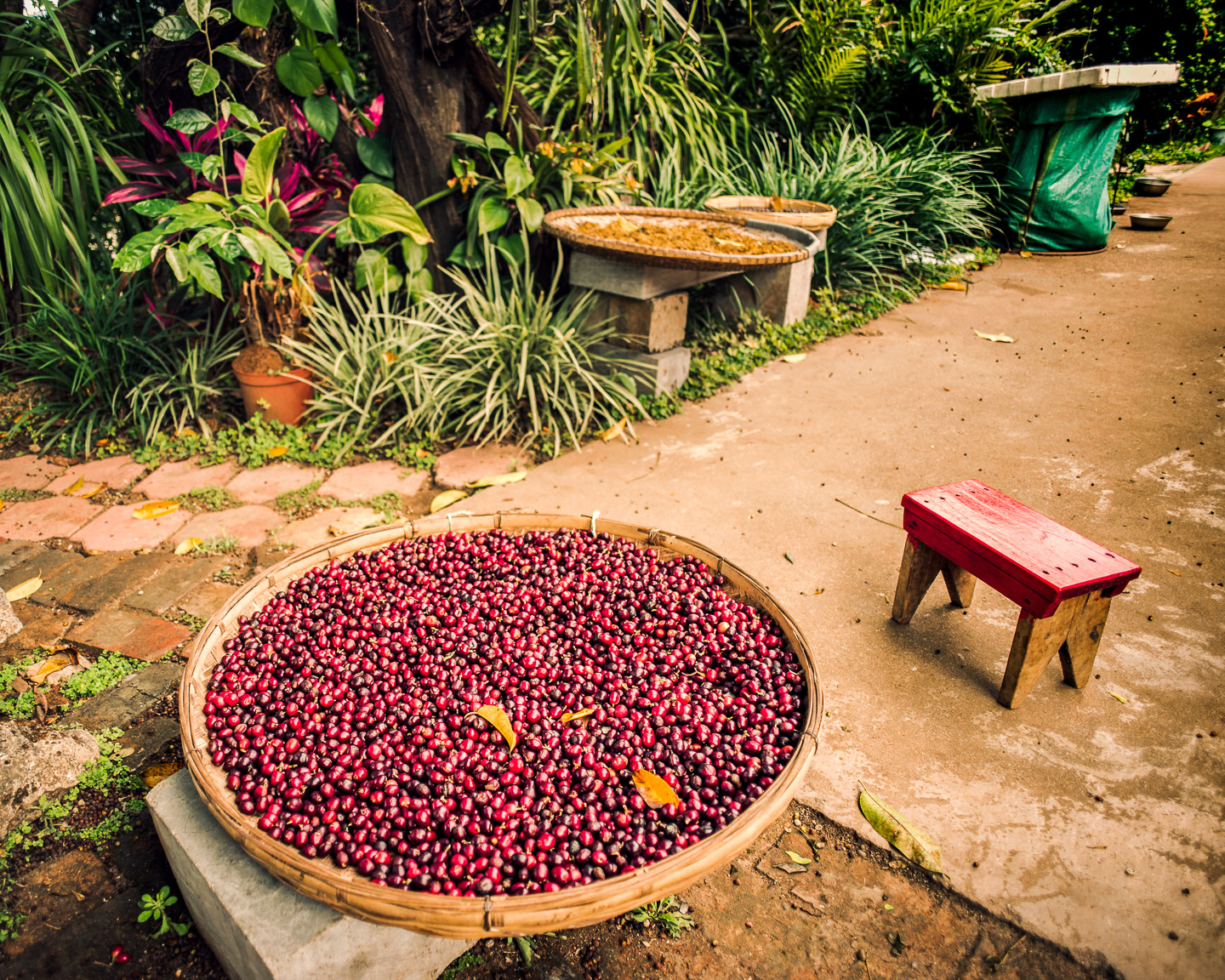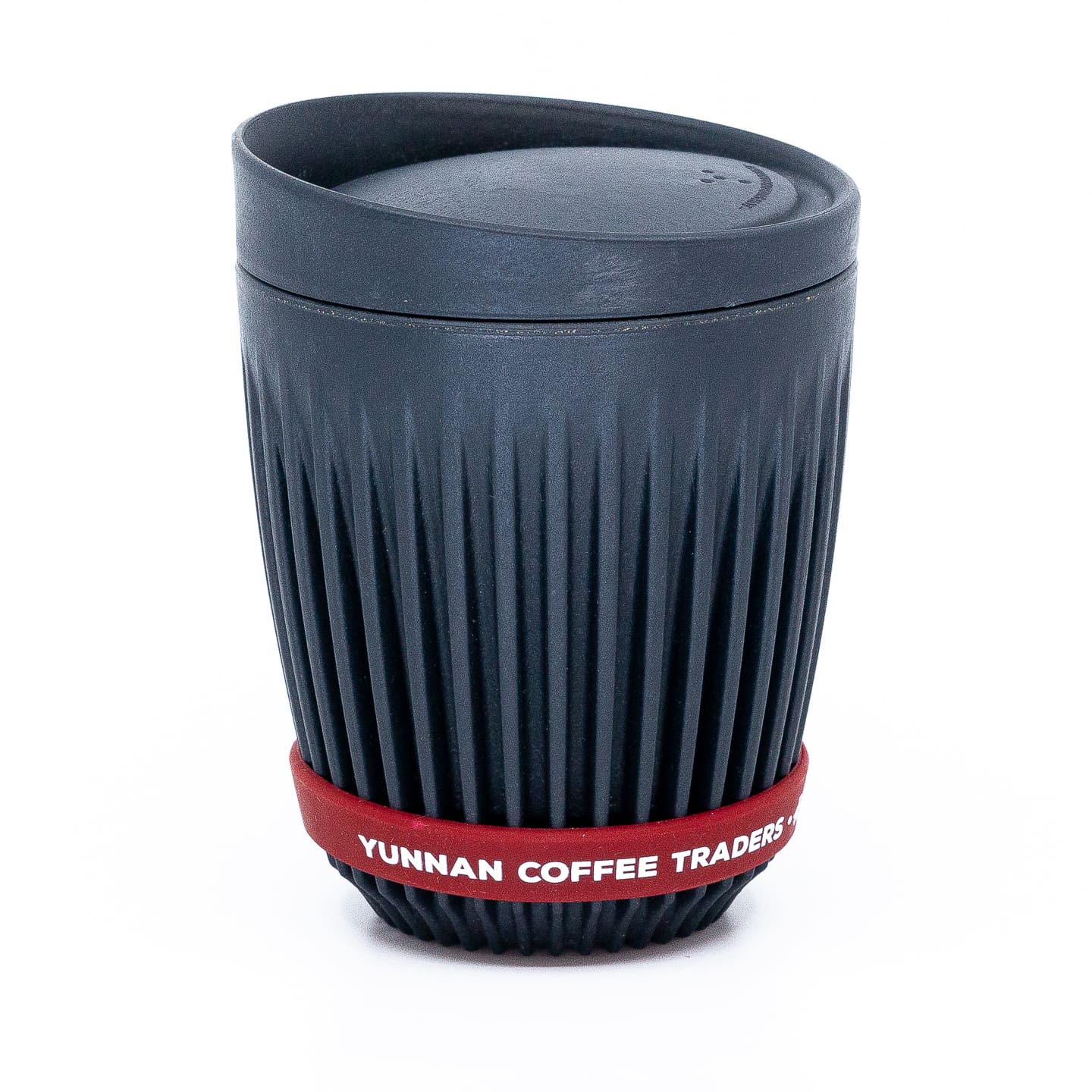Atlas founder Craig Holt has traveled to China several times over the past decade, and this year we’re especially delighted to have partnered with exporter Yunnan Coffee Traders (YCT) to bring in our first container of microlots from Yunnan province in southwestern China. The microlots, both washed and natural process, just landed this month at Continental Terminals in New Jersey. I reached out to Joshua Jagelman, YCT’s Managing Director, to learn more about the history of Yunnan Coffee Traders and China’s rapidly-growing specialty-coffee scene.
Susan: Congratulations on becoming the largest coffee exporter for specialty coffee out of Yunnan! Can you share about some of the history of specialty coffee in Yunnan and of Yunnan Coffee Traders in particular?
Joshua: While Nestle kick-started commercial coffee farming in Yunnan about three decades ago, specialty coffee is much more recent. Our partnership with Mangzhang Coffee Farm in Menglian [a county within Yunnan province] was part of the genesis of large-volume specialty coffee production and export in China. We started working together back in 2013 as a three-way collaboration which also included Pablo & Rusty’s Coffee Roasters from Sydney, Australia.
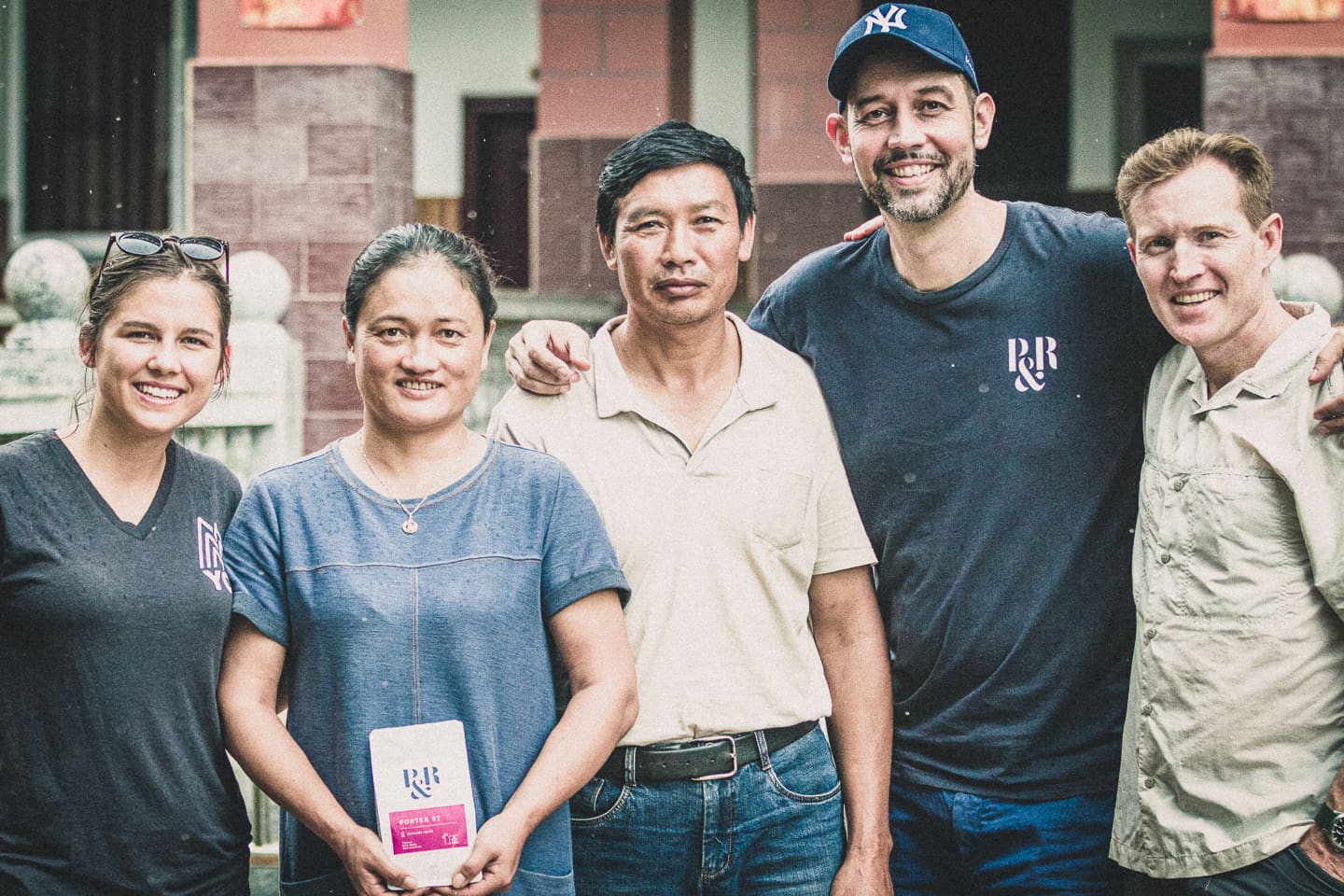
Mangzhang coffee farmers with team members from YCT & P&R, all progenitors of the specialty coffee industry in Menglian. Photo courtesy of Yunnan Coffee Traders.
Susan: Can you share how you became involved with YCT?
Joshua: My wife, Alexandra, moved to China in 1997 to work with the local government in primary health care programs. She and her team did some truly amazing things like eradicating leprosy and training more than 700 village doctors. Serving for almost ten years among the rural poor of southwest China, we had completely fallen in love with Yunnan and its people. So, after her projects finished, we decided to remain in China and shift into business. Based on the terroir of Yunnan, it came down to growing tea or coffee. Would you buy tea from a white guy in China? So, yeah, we chose coffee, and Yunnan Coffee Traders was founded in 2015.
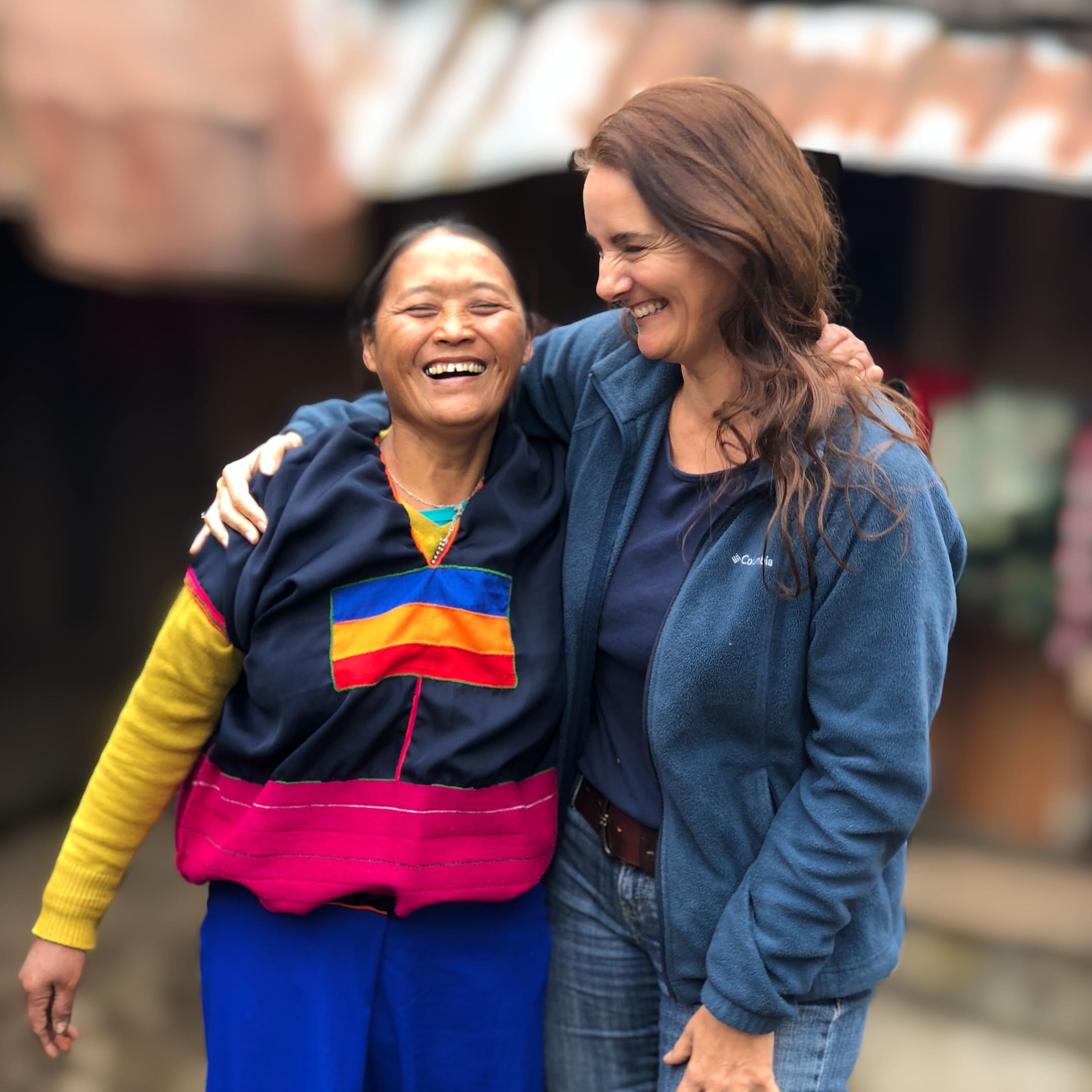
Alexandra and her team have trained over 700 village doctors in southwest China. Here, Alexandra is with a friend from the Kunge, one of the smallest ethnic groups in China, with only ~2,000 people. Photo courtesy of Yunnan Coffee Traders.
Susan: What’s the internal market like in China for specialty coffee? What is the coffee-drinking culture like in Yunnan in particular?
Joshua: It is growing at a rapid pace! A simple nod to this is the success of Chinese competitors, such as Zhu Jingui and Shih Yuan Hsu, in the World Coffee Championships. China now also hosts an annual Specialty Coffee Symposium that attracts many big names in global specialty coffee.
As for coffee-drinking, the Chinese market is still enamored with the “cream and sugar” experience of brands such as Starbucks. But specialty coffee is on the rise in larger cities.
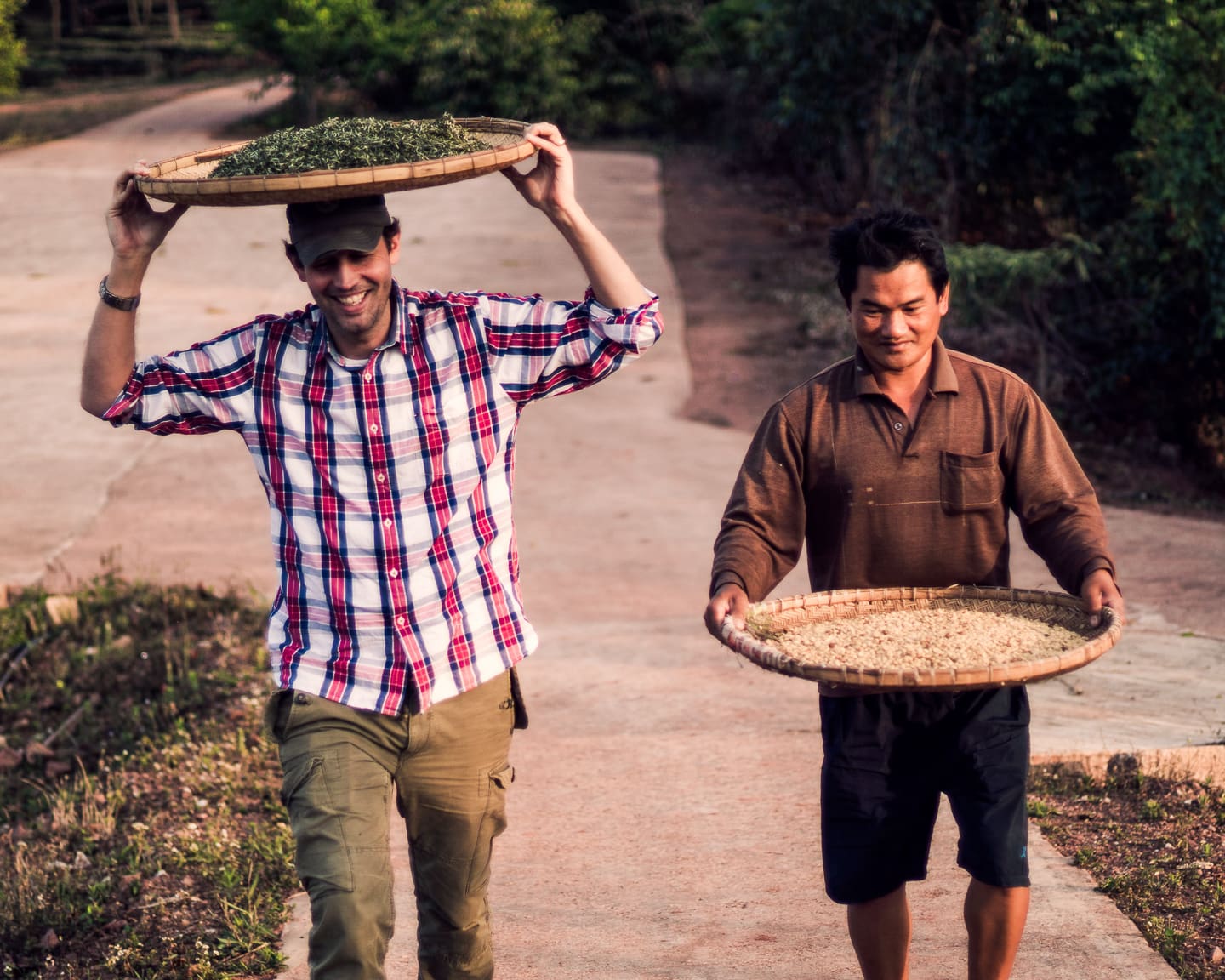
Joshua from YCT and Li from Fuyan coffee farms get ready to sort specialty tea and coffee, both produced at Fuyan. Photo courtesy of Yunnan Coffee Traders.
Susan: Can you share a bit about your model as an exporter and how you work with communities and washing stations? Do you see more demand for washed vs. natural coffees? Any pulped-natural or other processing trends?
Joshua: For our early contracts, we used the principle of "fixed-price against procedures" - the buyer agreed to purchase coffee at a fixed price as long as a particular production process was engaged. Putting pressure on a farmer to perform solely at quality in an emerging origin is not worth the risk to him or her. However, asking them to “produce coffee with a few tweaks” is something that intrigues without the fear of loss. With a deeper understanding of the variables, there is much better control over the outcomes. So, by focusing on process (variables), and not just quality (outcome), we are able to achieve better consistency.
Washed versus Naturals? Even though we've seen some fantastic naturals produced locally, it’s the washed coffees that are the consistent performers. Although buyers do want the great experience of a Yunnan natural coffee (fudge, plum, black tea), they don't want to pay a price that recognizes the risk to the farmer. In my opinion, Yunnan coffee is emerging as a competent blender. It has attributes that allow it to "play well" with other coffees but it still maintains a distinctiveness that qualifies it as a decent single origin. As for pulp-naturals, local farmers (including us) are experimenting, but no one has large volumes yet.
Susan: What are some of the biggest challenges you have faced or are currently facing?
The biggest challenge we have faced and continue to face is inconsistency with picking ripe cherries.
Susan: What are you most excited about as you think of the specialty coffee industry in Yunnan and about YCT in particular?
Joshua: For Yunnan coffee, it's empowering (and a little overwhelming) to realize that we are now seeing the emergence of a coffee producing and consuming 'super-power.' This comes at a time when China is serious about sustainability and innovation matters – and lending strong support to local industries that are embracing this.
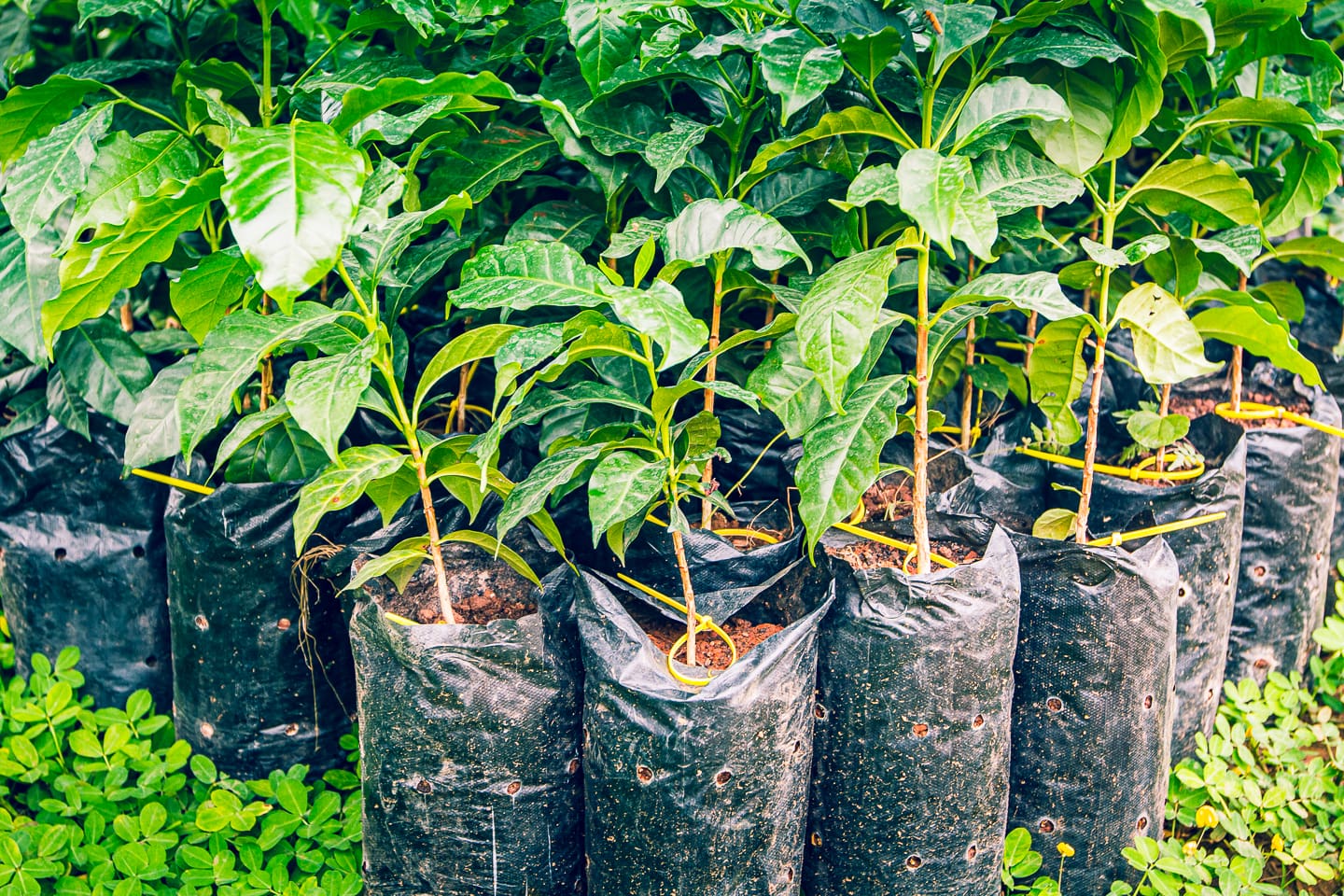
New varieties (Yellow Bourbon and Pacamara) await planting at the Banka nursery. Photo courtesy of Yunnan Coffee Traders.
Susan: I read another great interview on your website for Pu'er Magazine on December 2018, where you mentioned that YCT was preparing to supply organic waste material to Huskee for their HuskeeCups. Any updates? What does that process look like?
Joshua: I am super excited about waste reduction in the production of coffee. For every 100 tons of coffee we produce, there are about 20 tons of parchment with nowhere to go. However, in 2017 HuskeeCup was founded. The product speaks for itself, but I will add that launching this global phenomenon from a dry mill in Menglian has inspired us to dream big! We are now turning our attention to eco-friendly production methods for husk-based charcoal and biochar fertilizers.
We've been supplying husks to Huskee now for a few years and every order they need more. Cafés around the world are joining the HuskeeSwap program – one of the world's first genuinely viable solutions to removing disposables from retail! The process goes something like this: Cherry to parchment at washing station, then parchment to green at dry mill. Green coffee exported to our clients and parchment (husk) sent to Huskee.
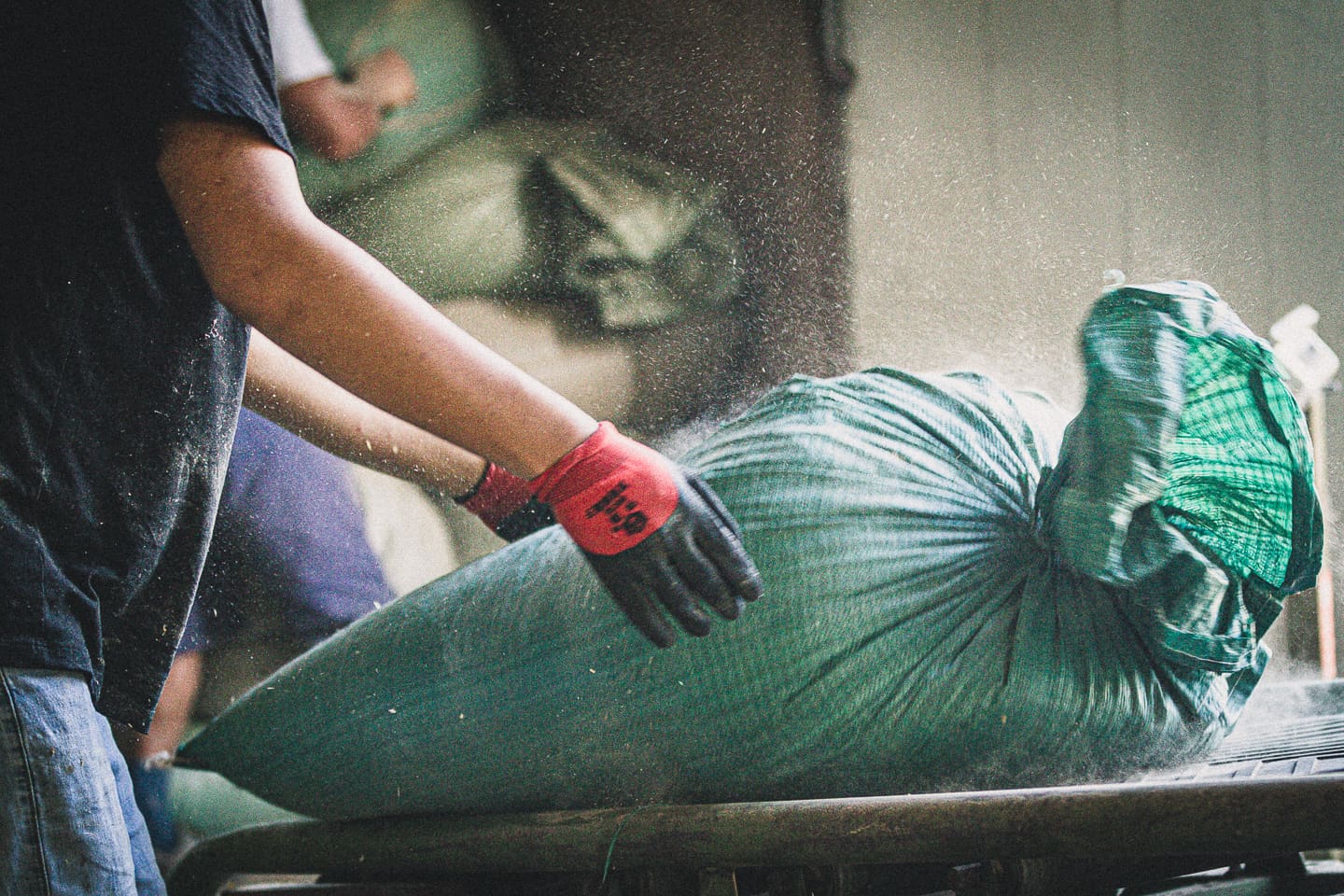
Loading bags of husk at the dry mill to send off to Huskee. Photo courtesy of Yunnan Coffee Traders.
Susan: Can you speak to challenges or successes regarding youth in coffee or gender-equity initiatives in Yunnan?
Joshua: At the production end, there is mass youth migration to the cities to look for factory work and office jobs. But on the retail side of things, new cafes and roasters dominated by youth are everywhere.
In terms of gender issues, there is generally an even spread of participation and access to opportunity. Women farmers produce many of the best (i.e. award-winning) coffees in Menglian and, anecdotally, I’d say more than 50 % of the Chinese Q-graders we work with are women.
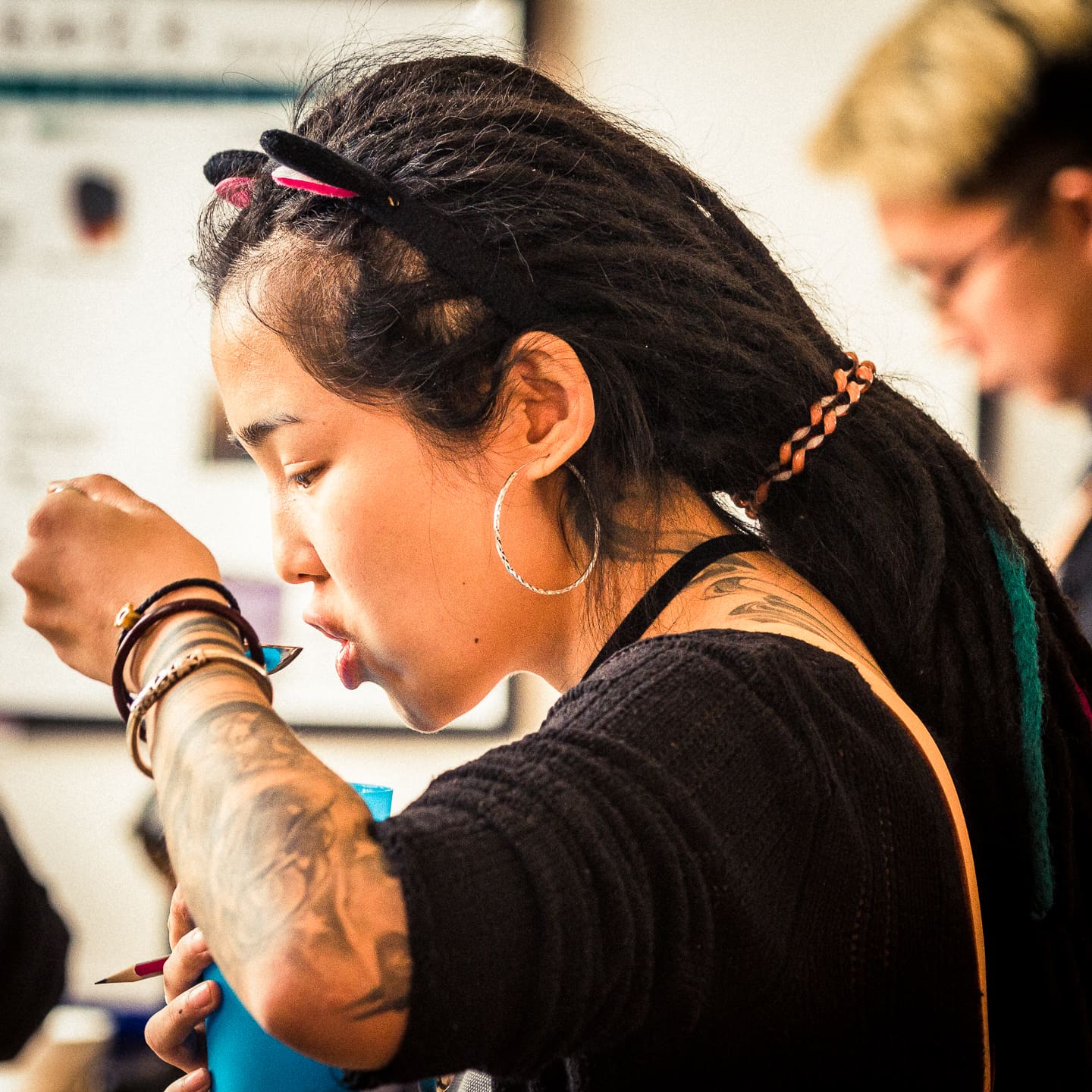
A Chinese Q-grader from Inner Mongolia judges coffee at the inaugural Best of Menglian coffee competition. Photo courtesy of Yunnan Coffee Traders.
Susan: With the historically low coffee market and increasing concern about sustainable pricing models, can you share a bit about which factors go into determining the final price for the coffees you sell?
Joshua: We’ve spent the last few years drilling down into the costs of production in Yunnan. It's hard to set a fair price if you don't know what your COGS are! Also, in the process of cost discovery, we often find ways to reduce production costs and realize other efficiencies. We then work with the farmer to determine a viable sales price for a fixed-price contract, sometimes with a 'swing' term added, which allows the pricing to swing up and down at a relative % to market pricing.
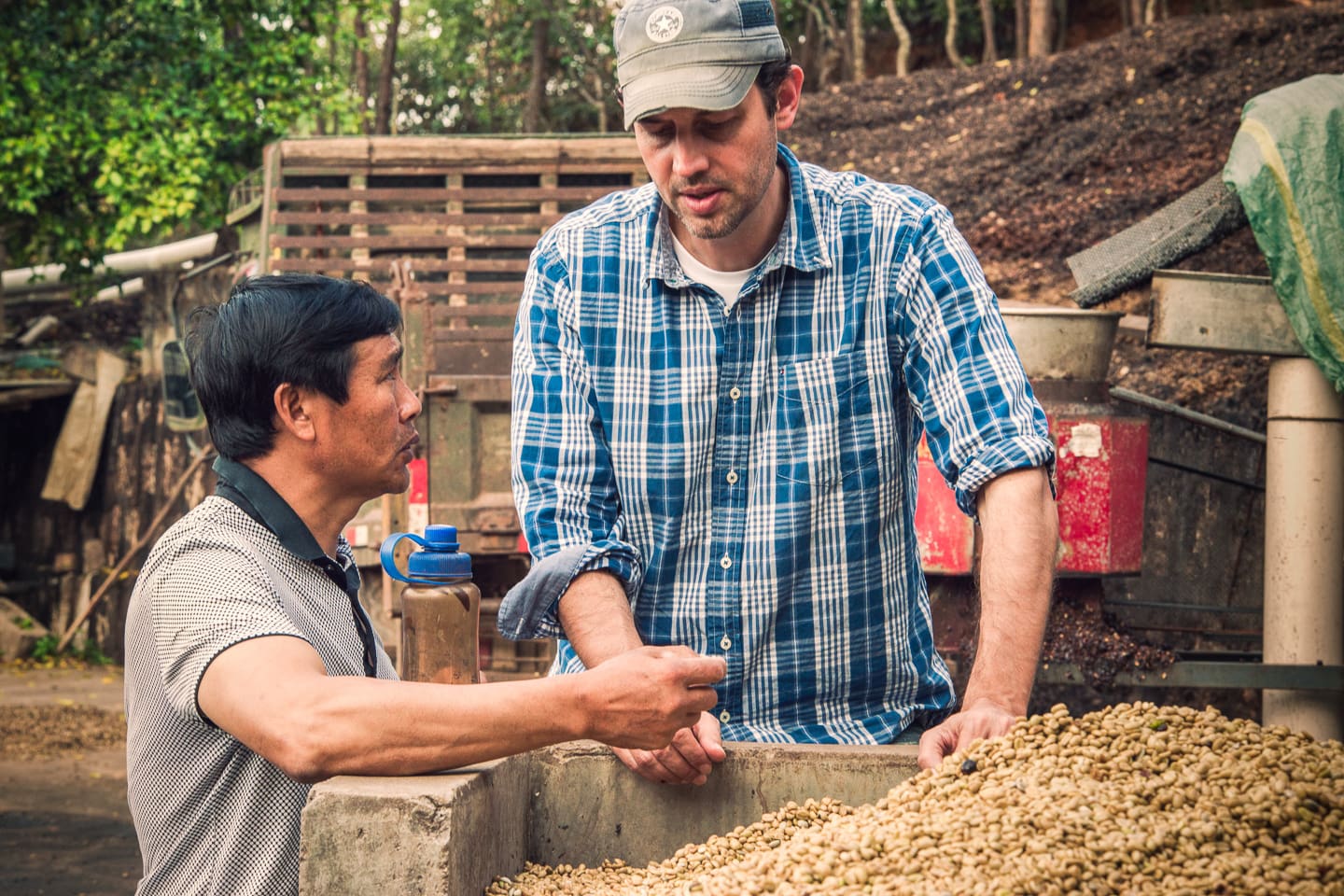
Mr Hu and Joshua discuss cost efficiencies and quality maintenance at Mangzhang washing station. Photo courtesy of Yunnan Coffee Traders.
For YCT, three main cost factors are trade finance, mill upgrades and maintenance, along with the employment of fixed and roving mill supervisors and assistants. Currency hedging can also be problematic.
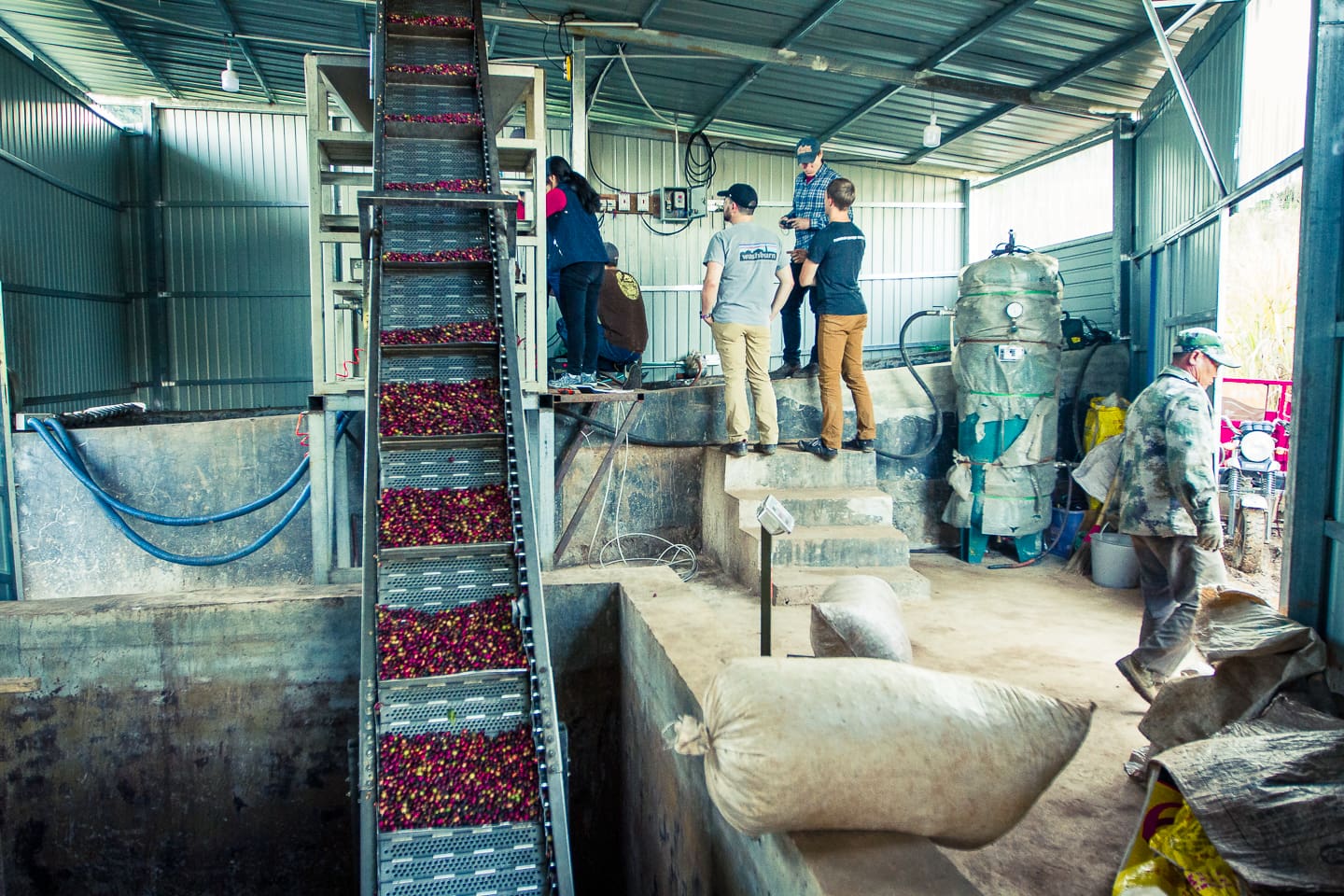
Visitors from Oliver Brown (Australia) inspect one of China’s first wet-mill-based laser color sorters at Banka washing station. Photo courtesy of Yunnan Coffee Traders.
Susan: Do you have any questions for the roasters who purchase coffee from YCT?
Joshua: How can we better serve you? We don't just source coffees from Yunnan, we live on the farm (Banka) just next to the washing station. If you need images of the coffees and communities we work with, just ask! Do you need help understanding how Yunnan coffee best combines with your existing single-origin menu or your blends? We're licensed Q graders and know our coffees better than anyone.
Susan: Anything else you would like to share about YCT and coffee from Yunnan?
Joshua: We are so encouraged by the interest and support for Yunnan coffee from roasters and cafes across the globe. Over the past few years, many industry professionals have joined us on the farms to pick cherries, process coffees, and drink baijiu [a type of grain liquor]. We've made many new friends from all over the world. People love coffee, but coffee also helps people love.
Susan: Joshua, thanks so much for your time. Roasters! We have several delicious lots that just arrived at Continental Terminals – New Jersey. Reach out to your sales rep with any samples or questions.
